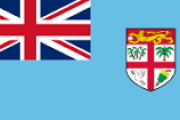Fijian Prime Minister Hon. Voreqe Bainimarama joined the UN Secretary General António Guterres in calling for global leadership to secure financing for Development in the Era of COVID-19 and beyond.
The UNSG together with the Prime Ministers of Canada and Jamaica co-convened urgent virtual discussions to draw attention to the financing needed to respond to the social and economic impacts of COVID-19 on developing countries.
The Secretary General told 50 World Leaders and the President of the World Bank, the Managing Director of the International Monetary Fund that the “World needed to act decisively and with great urgency to meet this human crisis”.
The virtual discussions between World leaders and heads of multilateral institutions were focused on six pressing issues:
1. The need to maintain financial stability to safeguard SDG development gains;
2. The need to address debt vulnerabilities for developing countries;
3. The need to create a space in which private sector creditors can proactively engage;
4. Prerequisites for enhancing external finance for inclusive growth;
5. Measures to foster domestic resource mobilization;
6. Ensuring a sustainable and inclusive recovery.
The President of the World Bank, President of the EU, the Head of the International Monetary Fund and the Heads of State and Governments from 50 countries participated in these urgent discussions.
President of the EU, President of France, Chancellor Merkel, Prime Minister Boris Johnson were among the many leaders that presented bold proposals and new recommendations for supporting developing countries to respond to the difficult social and economic consequences of COVID-19 crisis.
The UN Secretary General cautioned World Leaders that innovative, creative and bold measures were needed. He reminded the UN audience that current efforts did not go far enough. He said that unless there is a greater level of solidarity; 8.5 trillion dollars will be wiped out of the global economy and with it – jobs, livelihoods for tens of millions of people across the world. A UN report released last week suggested that the world will experience a reversal in human development for the first time in many decades. The Secretary-General also reminded the world that recovery from COVID-19 should be both sustainable and more equitable.
Prime Minister Bainimarama drew the attention of the world leaders to the unique challenges that small states faced; the standstill in whole sectors of the economy such as tourism; the collapse of remittances and the deepening uncertainties in supply chains hit the smaller island states much harder.
Prime Minister Bainimarama told the UN meeting that the COVID-19 crisis “is not of our own making, and again, our economies are bearing the brunt of its consequences. Financial constraints and debt vulnerabilities risk widening the gap between the developed and developing worlds, between North and South. This time, the enemy we face is not climate change, but contagion. And neither one rests for the other”.
“Fiji quickly rolled out strict directives to eliminate the coronavirus within our borders, and we’ve now gone over one month without a new case. But this pandemic’s economic consequences have proved far beyond our capacity to constrain. With up to 40 per cent of our GDP dependent on tourism, our road to economic recovery winds long and runs steep”.
The changes of a post-COVID world will be radical, and they will require radical financing solutions. But as economies of Small Island States are left reeling, our tourism revenue is gutted, and our lending capacity is limited, we cannot go at it alone.
“Just as a global health recovery cannot be confined to those who can most afford a possible new vaccine, a global economic recovery cannot be limited to those large economies who can unilaterally inject trillions into social and economic stimulus because of a superior position in the global financial system. Our global COVID-19 recovery must be bold, it must be coordinated, and inclusive”.
“Developed nations have injected $8 trillion dollars into their own economies, with more yet to come. If even the equivalent of one half of one per cent of this was dedicated to all the world’s Small Island Developing States, it would provide us with the vital support we need. But to get there, we will need far greater creativity on the part of the IMF, World Bank, regional development banks, and most importantly, international solidarity among the world’s large economies”.
Prime Minister Bainimarama called for international solidarity that gives SIDS the “fiscal space to maintain and expand social protections, while maintaining economic stability and sustained economic growth. We need international solidarity that provides us with grant and concessionary financing on a scale that allows us to repurpose existing economic sectors and build new ones that are fit for a post-COVID era”.
He also said that small states are most in need of “substantial relief from debt, including for climate-vulnerable middle-income states”.
Prime Minister Bainimarama supported the UN Secretary General’s call for responsible global leadership and for shaping a coherent and medium term global response. “Your leadership will determine whether a post-COVID world is left divided, or more united. Please, wield this power responsibly, the Prime Minister concluded.
The UN meeting of World Leaders was convened through the UN Group of Friends on Financing For Development – a grouping of Ambassadors in which Fiji is represented by its Ambassador to UN Dr. Satyendra Prasad. The UN SG and the Financing for Development Group are committed to maintaining focus on achieving all the global goals by 2030. Dr Prasad said “because the COVID19 pandemic is such a massive shock to the global economy; there is a real risk of the SDG’s becoming unachievable. This cannot be allowed to happen”.


